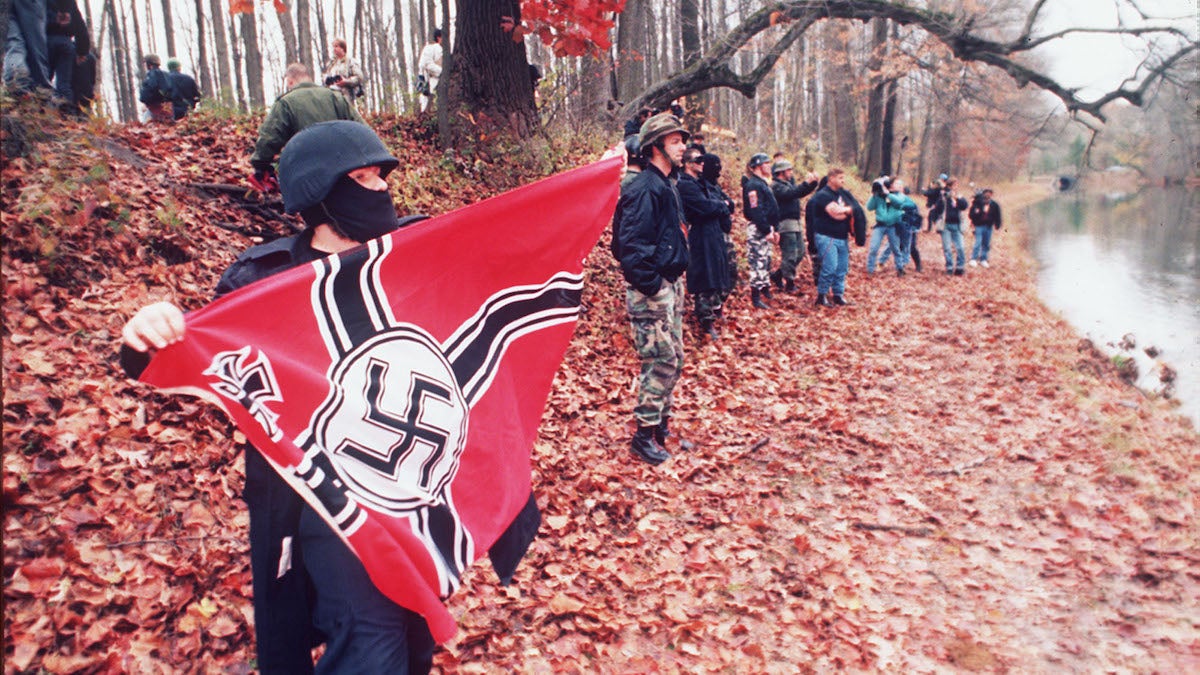Deradicalizing extremists
The storming of the Capitol was a visceral reminder to many of us that America is replete with extremist and cult-like groups, and that their existence is by no means benign.
Listen 49:00
An unidentified member of a neo-Nazi group displays a Nazi battle flag by the Delaware Canal as others engage in a shouting match with opponents on the other side of the canal during an anti-gay rally last year in a state park in Washington Crossing, Pennsylvania. Both groups also hurled rocks, bottles, and sticks at one another as hundreds of state police stood by. (AP Photo/Widman)
The January 6th storming of the Capitol was a visceral reminder to many of us that America is replete with various extremist and cult-like groups, and that their existence is by no means benign. Today on the show, we’re going to talk about how people get involved and indoctrinated with white supremacist groups, violent insurrectionists, and conspiratorial thinking, and how they can be deradicalized from harmful thoughts and behavior. Joining us is Chapman University sociologist and expert in extremist groups PETER SIMI, and cult expert DIANE BENSCOTER, a former “Moonie” who has been working with the families of Qanon conspiracy adherents.

Subscribe for more Radio Times
WHYY is your source for fact-based, in-depth journalism and information. As a nonprofit organization, we rely on financial support from readers like you. Please give today.





